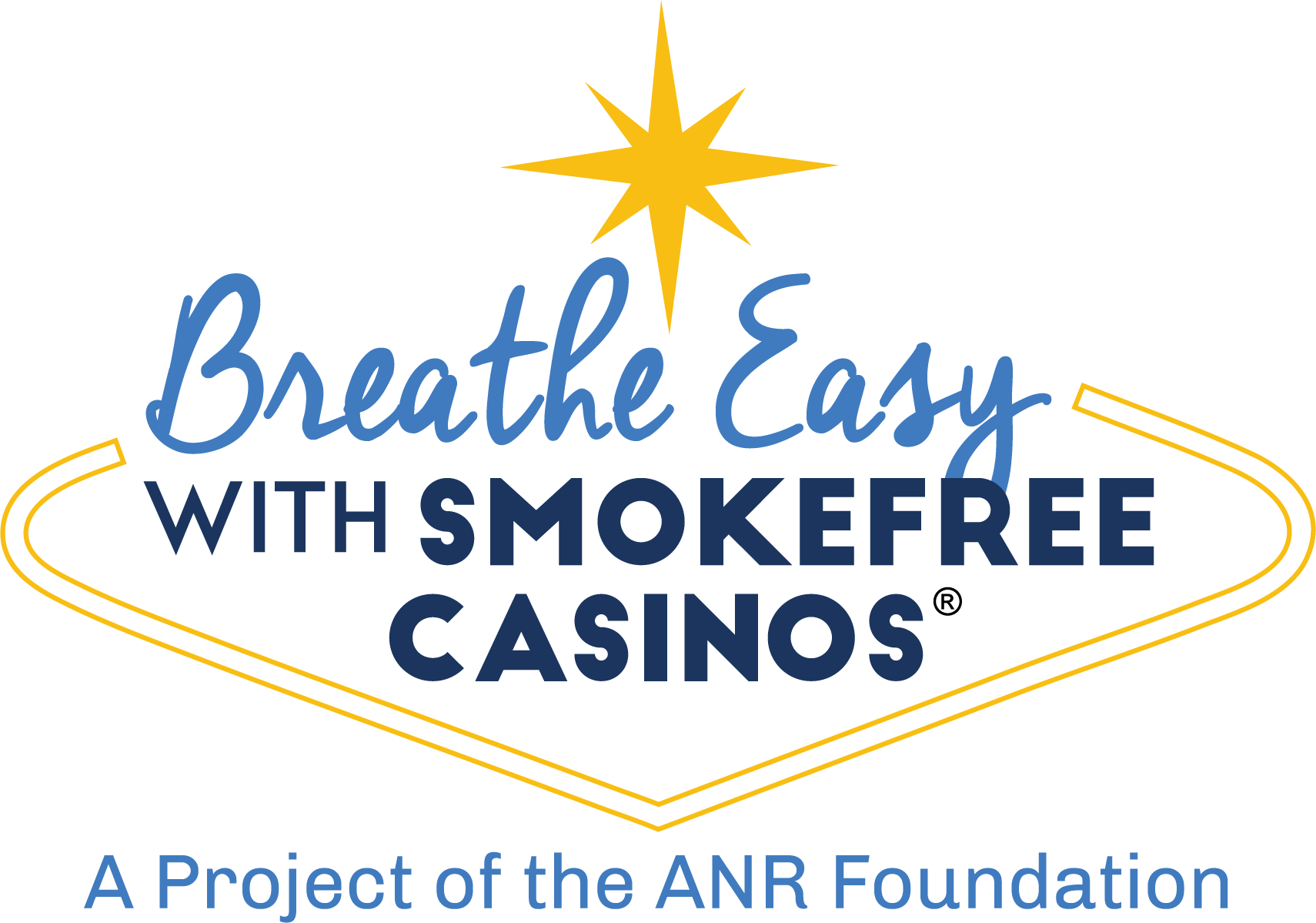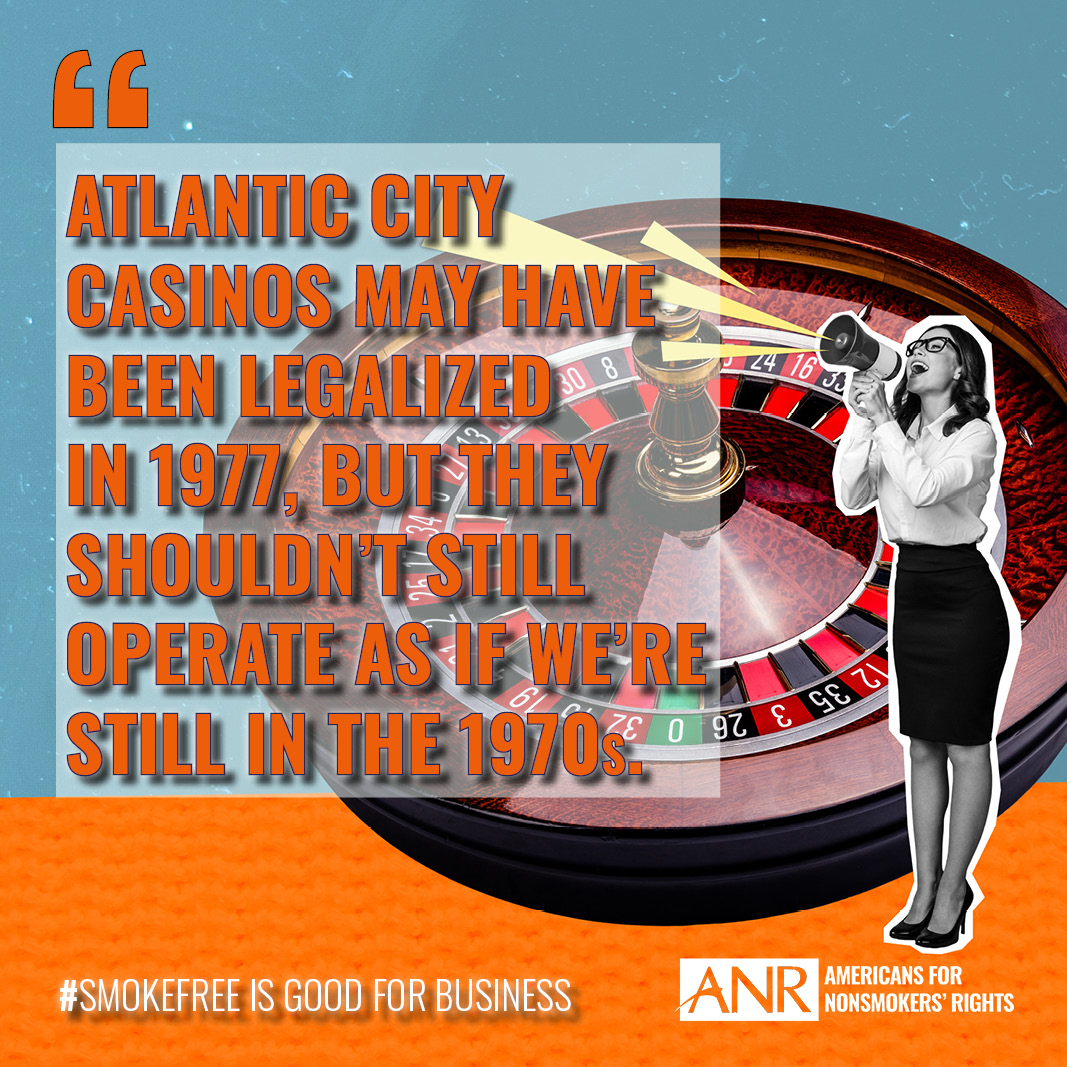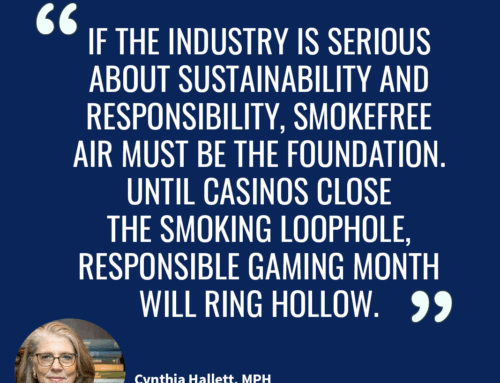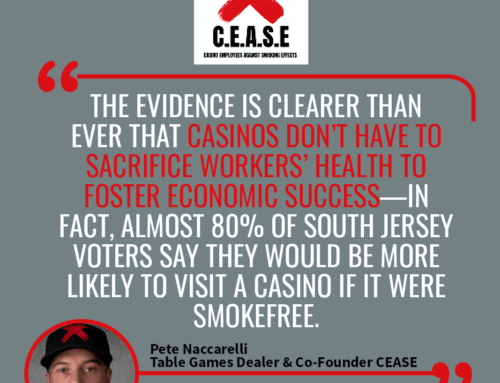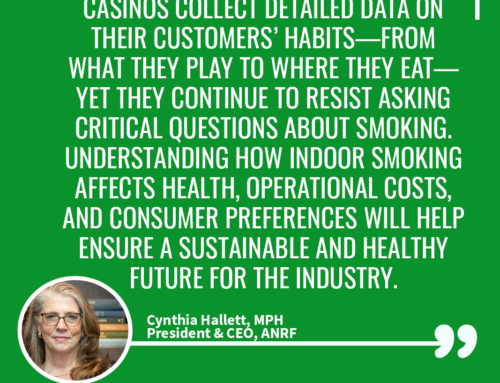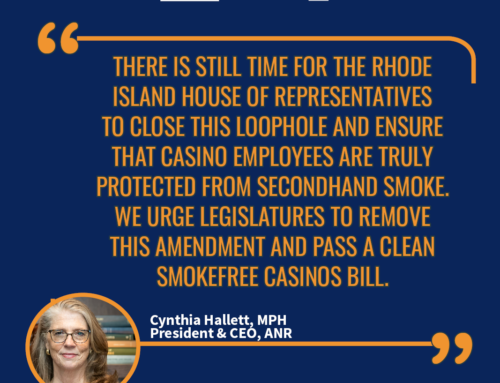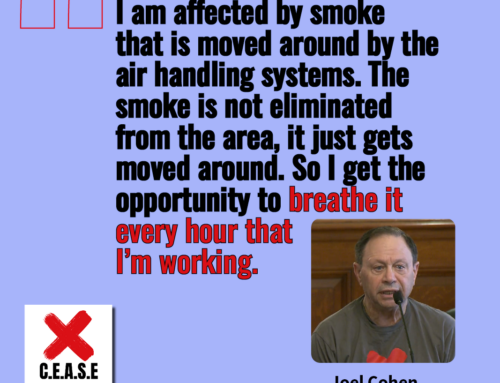Atlantic City Casino Workers Have Been Living with a Compromise for 18+ Years Since They Were
Excluded from State Law

Atlantic City, NJ—At a recent event covered in The Press of Atlantic City, New Jersey Assembly Majority Leader Lou Greenwald cited claims by the Casino Association of New Jersey that have been disproven by neutral observers in the last few years.
Cynthia Hallett, president and CEO of Americans for Nonsmokers’ Rights issued the following statement:
“Casinos may have been legalized in 1977, but they shouldn’t still operate as if we’re still in the 70s. It’s long past time for legislative leaders to stop citing casino industry talking points about the supposed economic fallout of transitioning to smokefree environments. This is a settled debate at every other establishment in New Jersey. We’re disappointed that Majority Leader Greenwald continues to rely on these casino scare tactics that have real life-and-death consequences for thousands of New Jersey workers, including many of his constituents.
“Here are the facts: Nearly 75% of Philadelphia-area residents would be more likely to visit Atlantic City casinos if they were smokefree indoors. Philadelphia-area Parx Casino, which competes with Atlantic City casinos, has increased its market share since voluntarily ending indoor smoking three years ago. Other smokefree casinos in competitive markets around the country, Tribal and commercial alike, have earned more revenue than the competition. Now is the time for Atlantic City casinos to break free from outdated practices and prioritize the health and safety of their employees and guests while enjoying the increase in visitorship that would also result from this change.”
The US Surgeon General has made clear that indoor smoking rooms – like the ones that used to be at airports – do not solve the problem of people being exposed to dangerous secondhand smoke. Air pollution levels from secondhand smoke directly outside of smoking rooms is nearly 4 times higher than in non-smoking areas, according to a Centers for Disease Control and Prevention study. “Ventilated smoking rooms and designated smoking areas are not effective,” says the CDC. “Prohibiting smoking in all indoor areas is the only effective way to fully eliminate exposure to secondhand smoke…People who spend time in, pass by, clean, or work near these rooms are at risk of exposure to secondhand smoke.”
ANR recently filed an amicus brief with the Appellate Division of the Superior Court of New Jersey in the case of UAW and C.E.A.S.E v. Murphy and Baston, which seeks to close the casino smoking loophole in New Jersey’s Smoke-Free Air Act. The brief states, “According to the Surgeon General, there is no safe level of exposure to secondhand smoke. Breathing secondhand smoke for even a short time can have immediate adverse effects on the cardiovascular system, increasing the risk of heart attack. Nonsmokers exposed to secondhand smoke at home or work face a 25-30% increased risk of heart disease and a 20-30% increased risk of lung cancer.” The brief further emphasizes that under the New Jersey constitution, corporate profits cannot justify excluding a class of people from health and safety laws. Data and research do not support casinos’ claims that eliminating indoor smoking will lead to dramatic revenue losses.
###
ABOUT AMERICANS FOR NONSMOKERS’ RIGHTS
ANR Foundation’s sister organization, Americans for Nonsmokers’ Rights (ANR) is a member-supported, non-profit advocacy group that has been working for over 45 years, since 1976, to protect everyone’s right to breathe nontoxic air in workplaces and public places, from offices and airplanes to restaurants, bars, and casinos. ANR has continuously shined a light on the tobacco industry’s interference with sound and life-saving public health measures and successfully protected 61% of the population with local or statewide smokefree workplace, restaurant, and bar laws. ANR aims to close gaps in smokefree protections for workers in all workplaces, including bars, music venues, casinos, and hotels. For more information, please visit https://nonsmokersrights.org and https://smokefreecasinos.org
